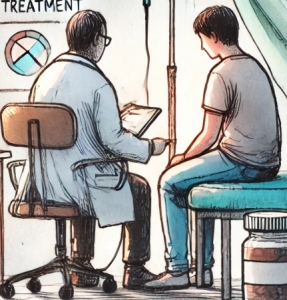
Economic Stress: The Silent Health Crisis
When you think about stress, what comes to mind? Maybe it’s the daily grind, tight deadlines, or juggling family responsibilities. But have you considered the invisible weight of economic stress? This form of stress, tied directly to our financial situation and job security, is a silent force affecting millions globally, with major implications for our health and well-being. A recent scientific review unpacks this relationship.
Understanding Economic Stress
Economic stress isn’t just about the numbers in your bank account; it’s a complex interplay of factors like unemployment, underemployment, financial deprivation, job insecurity, and financial stress. Each of these elements paints a part of the broader picture of economic stress.
- Financial Stress: This refers to the anxiety we feel when our financial resources seem inadequate to meet our needs. It’s the worry that grips you when you think about unpaid bills or unexpected expenses.
- Financial Deprivation: Unlike financial stress, which is subjective, financial deprivation is objective. It’s the harsh reality of not having enough income to cover basic needs like food, housing, and healthcare.
- Unemployment: Being out of a job, especially for long periods, can be devastating. It strips away the structure, social contact, and a sense of purpose that employment provides, leading to severe psychological distress.
- Underemployment: This occurs when you work in a job that doesn’t utilize your skills or offers inadequate hours and pay. It’s frustrating and demoralizing, impacting mental health and job satisfaction.
- Job Insecurity: The fear of losing your job can be just as stressful as being unemployed. It creates a persistent anxiety that affects your performance and mental well-being.
The Domino Effect on Health
The effects of economic stress ripple through every aspect of our lives, influencing both physical and mental health. Research has shown strong links between economic stressors and various health issues:
- Mental Health: Anxiety, depression, and even suicidal thoughts can stem from prolonged economic stress. The constant worry about finances or job stability takes a significant toll on mental well-being.
- Physical Health: Chronic stress from economic pressures can lead to high blood pressure, heart disease, and other stress-related illnesses. The body’s stress response, intended to be short-term, becomes a long-term burden, weakening the immune system.
- Behavioral Changes: Economic stress can lead to unhealthy behaviors such as smoking, alcohol abuse, and poor diet. These behaviors are often coping mechanisms for the stress, but they compound the health risks.
Why Should Public Health Practitioners Care?
For public health practitioners, understanding and addressing economic stress is really important. Here’s why:
- Widespread Impact: Economic stress affects a vast portion of the population. Surveys consistently find that work, money, and the economy are among the top sources of stress for Americans.
- Health Disparities: Economic stress often exacerbates health disparities. Those already vulnerable, such as low-income families, face higher risks and more severe health outcomes.
- Community Health: Economic stress doesn’t just affect individuals; it impacts communities. High levels of economic stress can lead to increased healthcare costs, reduced productivity, and higher rates of mental health issues in the community.
Tackling Economic Stress: A Multilevel Approach
Addressing economic stress requires interventions at multiple levels – individual, organizational, and community.
- Individual Level: Financial education and planning programs can help individuals manage their finances better, reducing financial stress. Employee assistance programs (EAPs) that provide financial counseling can also be beneficial.
- Organizational Level: Companies can play a significant role by offering fair wages, job security, and supportive work environments. Policies that promote work-life balance and provide adequate benefits are crucial.
- Community Level: Community action programs and social safety nets can provide essential support. Initiatives like universal basic income and affordable housing projects can alleviate financial deprivation.
The Road Ahead: Research and Action
There is still much to learn about economic stress and its impacts. Future research should focus on:
- Interconnected Stressors: Understanding how different forms of economic stress interact and compound each other.
- Long-term Effects: Investigating the long-term health consequences of economic stress and the effectiveness of various interventions.
- Diverse Populations: Expanding research to include diverse populations, especially those in low-income and non-Western countries.
Join the Conversation
What experiences have you had with economic stress? How has it affected your health or the health of those around you? Share your thoughts and stories in the comments or on social media using #EconomicStressImpact.
Conclusion
Economic stress is a pervasive issue with far-reaching consequences. By recognizing its impact and implementing strategic interventions, we can improve not only individual health outcomes but also the overall health of our communities. As public health practitioners, it’s time to put economic stress on the radar and take action to mitigate its effects.
Be Part of the Change – Get Weekly Updates!
Stay informed and connected. Subscribe for free and share this blog to make a difference in public health with others.



